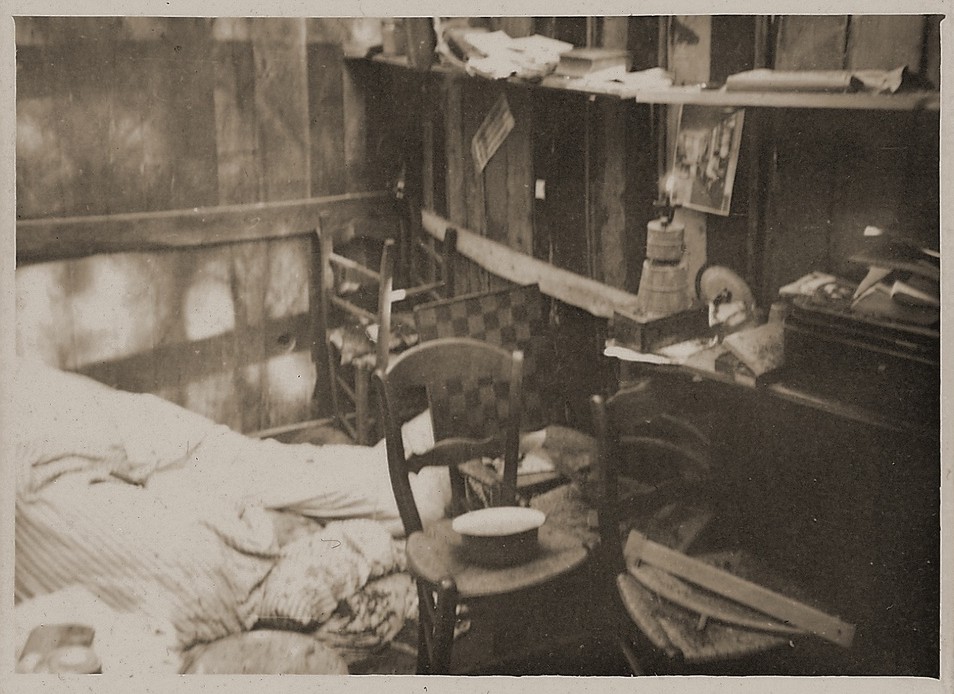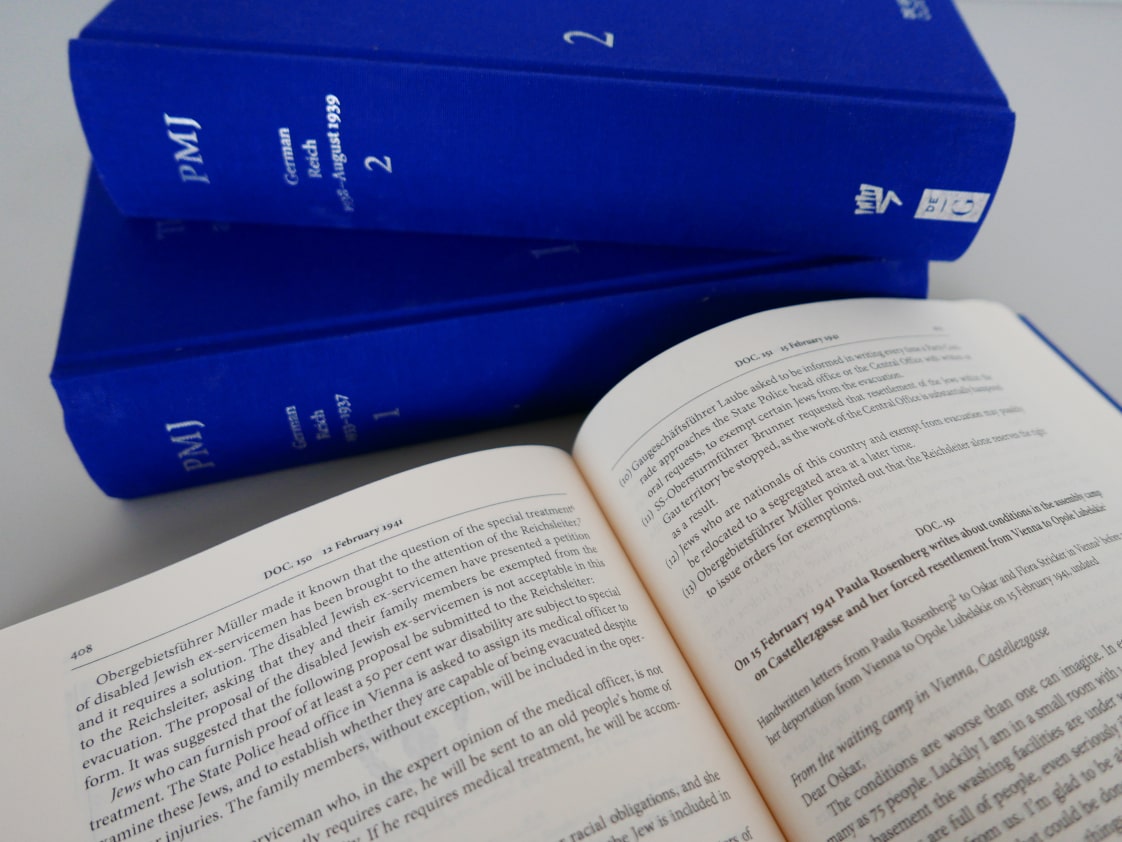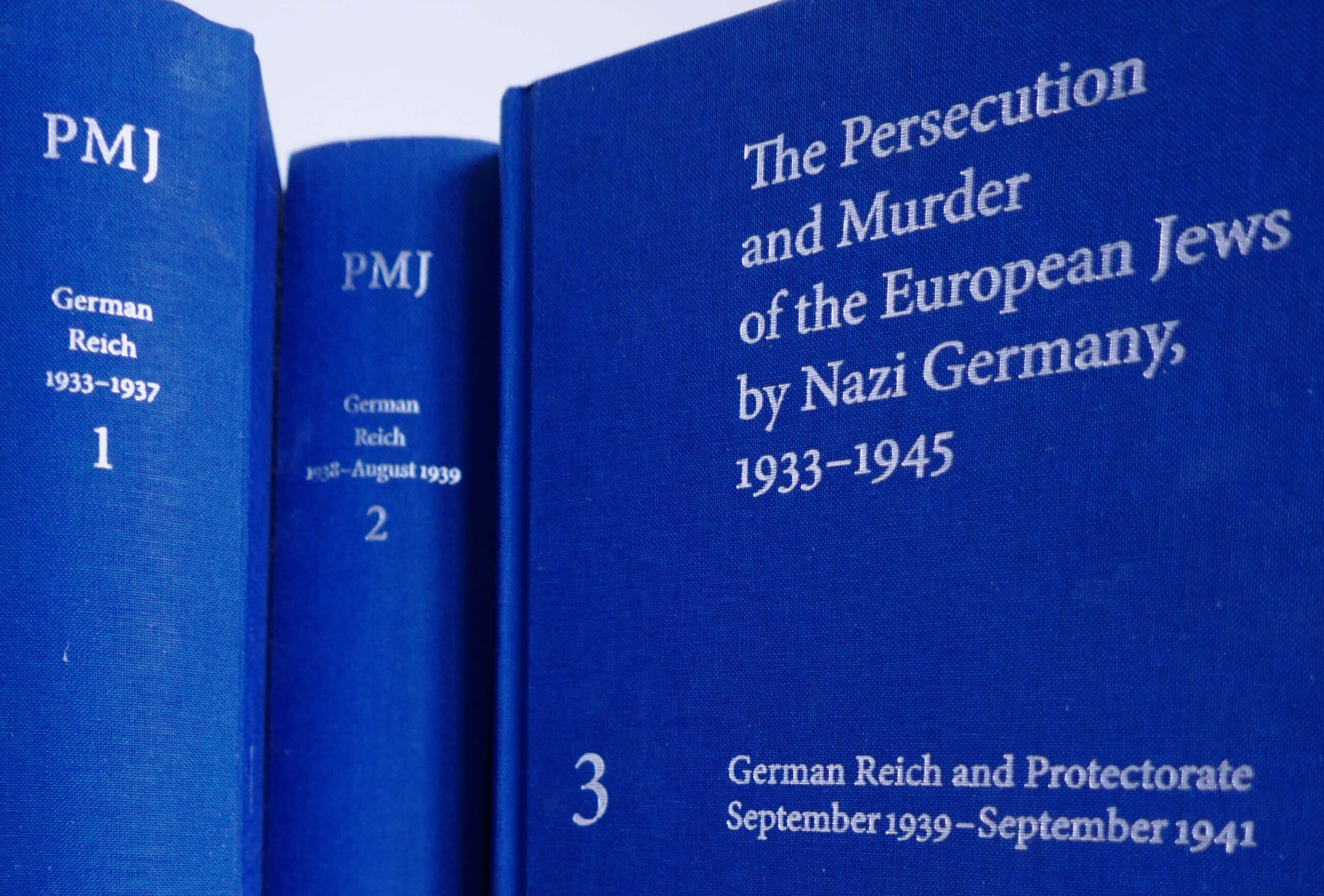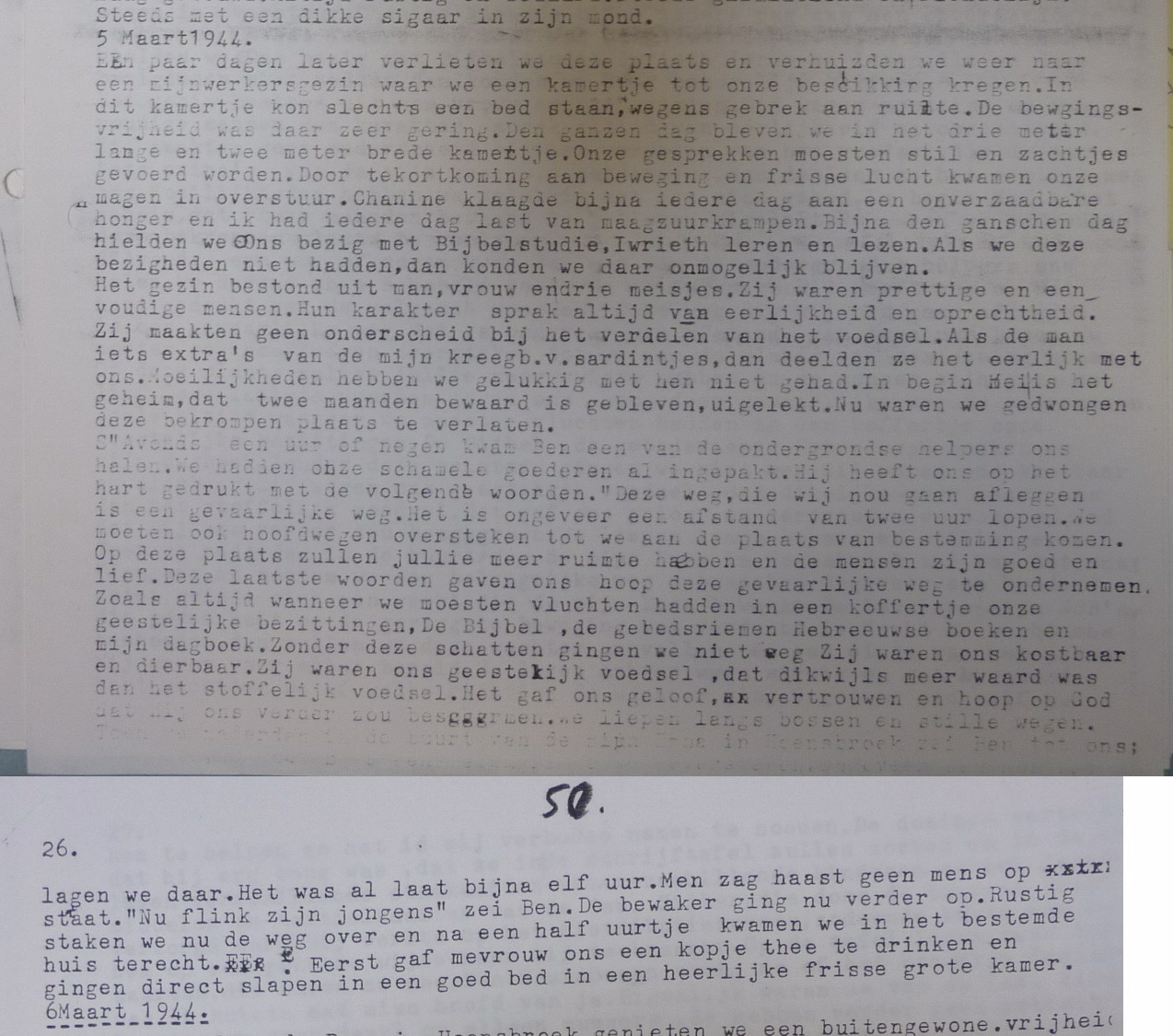5500 documents
Over 400 archives
Geographical scope
Multiple perspectives
Around 10,000 biographies
Over 45 maps

Documents in the spotlight
What makes the PMJ series so special?
See for yourself. Our Spotlight section showcases one translated document and a scan of the corresponding original to give you a sense of what the PMJ series offers. Check back often for new content and more insights.
On 5 March 1944 the brothers Salomon and Chanine Silber move to a different hiding place with the help of a member of the resistance1The original is privately owned; copy in NIOD, 471/9e. Published in Salomon Silber, Een joods gezin in onderduik: Dagboek (Kampen: Kok, 1997), pp. 153–154. This document has been translated from Dutch.
Diary of Salomon Silber,2Salomon Silber (b. 1922), retailer; emigrated from Poland with his family in 1933; lived with his brother in various hiding places from 1942; emigrated to Israel in 1953; worked in the film industry there until 1987. entry for 5 March 1944 (copy of typescript)
5 March 1944
A few days later, we left this place3From Dec. 1943 to March 1944, Salomon and Chanine Silber, along with up to 15 other Jewish young people and children, were sheltered by the family of Jo Broers, who was in charge of the pumping station for the Hendrik and Wilhelmina state coal mines and lived in the grounds. and moved in again with a miner’s family,4Christian and Maria Deckers lived in Brunssum; the brothers stayed with the family for two months. where a small room was made available for us. This room was so small it could only hold one bed. Our freedom of movement was very restricted there. We would stay in this room, which was three metres long and two metres wide, the whole day. We had to talk calmly and softly. Due to the lack of exercise and fresh air, we both got an upset stomach. Chanine5Chanine Silber (1926–1997); lived with his brother in various hiding places from 1942; emigrated to Israel in 1945; served as a soldier there, then worked for the post office after being wounded. complained almost every day about being insatiably hungry, while I was suffering from stomach cramps due to heartburn every day. We would spend almost the entire day studying the Bible, learning and reading Hebrew. Without this to fill our time, we would not have lasted out there.
The family consisted of a man, a woman, and three girls. They were pleasant, straightforward people. They were honest and sincere by nature. They made no distinction when dividing the food. When the man received something extra from the mine, such as sardines, they would give us our fair share. Fortunately, we did not have any problems with them. In early May, after two months, the secret was out, and we were forced to leave that cramped space.
At about nine o’clock in the evening, Ben,6Presumably Bernardus (Ben) Fritz (1922–1987), commercial employee; went into hiding after being called up for labour deployment in Germany; joined the resistance group Naamloze Vennootschap, in which he was responsible for housing and provisioning Jewish children in Brunssum (province of Limburg). one of the underground helpers, came to pick us up. We had already packed our humble belongings. He impressed on us the following: ‘The route we are taking is dangerous. It is about a two-hour walk. We will also have to cross main roads before we arrive at your destination. In that place you will have more space, and the people are decent and nice.’ These last words gave us the courage to undertake this dangerous journey. As always when we had to flee, we had our spiritual possessions, the Bible, tefillin, Hebrew books, and my diary, in a little suitcase. We would not go without these treasures. They were precious and dear to us. They were our spiritual sustenance, which was often worth more than the food we ate. They filled us with belief, trust, and hope in God, who would protect us. We walked past woods and along quiet roads. As we approached the Emma mine in Hoensbroek,7The Emma mine was one of the largest coal mines in the Netherlands from 1911 to 1973. Ben said to us: ‘Now we have to cross a main road. About one hundred metres further along, there is a guard at the Emma mine. The guards are NSB members who respond to the smallest suspicious movement. If one of them stops us, we will grab him and kill him.’ We were prepared for anything. We lay down behind the bushes and waited with pounding hearts to see which direction the guard would go. We lay there waiting for about half an hour. It was getting late: it was nearly 11 o’clock. There was hardly anybody out on the street. ‘Now be brave, lads,’ said Ben. Then the guard moved further along. We crossed the road quietly, and half an hour later we arrived at our destination.8 The new hiding place was in the family home of Tjeerd and Trijntje de Boer in Hoensbroek (province of Limburg). The brothers stayed there for the remainder of the occupation period: see Doc. 166. The woman gave us a cup of tea, after which we went to sleep straight away in a decent bed in a wonderful, fresh, large room.

Get to know our volumes
The PMJ volumes contain thousands of translated historical source documents relating to the persecution and murder of the European Jews by the Nazis between 1933 and 1945.
Each volume covers a specific geographical area, time frame, and set of languages ranging from German, French, and Dutch to Polish, Yiddish, and Russian. To find the relevant volume for your research, visit our Volumes page to download the lists of documents and specialist maps that have been produced for the PMJ series.

Order your copy today
The PMJ series is published by De Gruyter Oldenbourg and available for purchase. You have the opportunity to order your own copy of individual volumes, available in hardback and e-book versions. Visit our Purchase page to learn more.

